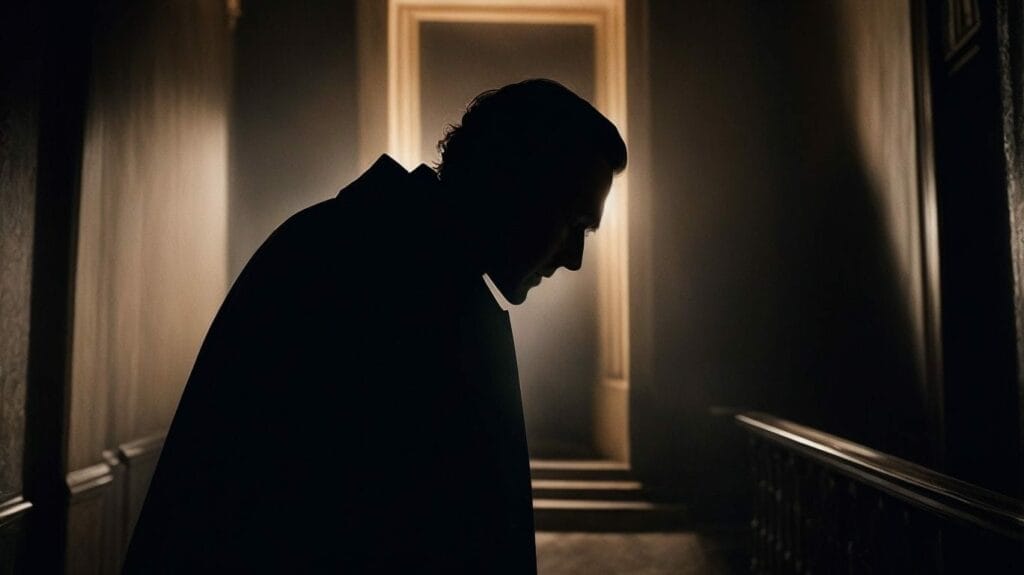Dracula, the iconic character and one of the most enduring figures in popular culture, has captivated readers and audiences for over a century. Understanding the origin and creation of Dracula is key to appreciating its legacy. The author responsible for bringing this immortal vampire to life is Bram Stoker.
Bram Stoker, an Irish author born in 1847, was a renowned writer and theater manager. While he wrote several novels, short stories, and non-fiction works, it is his Gothic horror novel Dracula, published in 1897, that would become his most famous and enduring literary contribution.
To understand the writing process of Dracula, it is important to delve into Stoker’s life and influences. Bram Stoker’s interest in folklore, mythology, and legends provided the groundwork for creating his iconic vampire character. Furthermore, Stoker’s extensive research into Eastern European history, vampire folklore, and Victorian society contributed to developing the novel’s intricate plot and richly detailed settings.
Upon its publication, Dracula received mixed reviews but gradually gained popularity. Today, it is considered a classic of horror literature and has left a profound impact on popular culture. Dracula’s enduring popularity can be attributed to its themes of superstition, love, and the grotesque, as well as its timeless portrayal of the immortal Count Dracula himself.
The legacy of Dracula extends beyond literature, with numerous adaptations in various media forms such as film, stage plays, and television series. The character of Dracula has become an iconic symbol of horror and has heavily influenced vampire mythology in popular culture. From Bela Lugosi’s portrayal in the classic 1931 film to recent adaptations and cultural references, Dracula continues to captivate and terrify audiences worldwide.
In this article, we will delve into the origin of Dracula, explore the life and influences of Bram Stoker, examine the writing process and inspiration behind the novel, and discuss the publication and reception of Dracula. We will explore the enduring legacy and impact of this iconic work of literature, as well as its continued presence in modern media and popular culture.
Key takeaways:
- Bram Stoker: The mastermind behind Dracula. Bram Stoker was the author of the iconic novel, known for his contribution to the horror genre.
- Inspiration and research: Stoker drew inspiration from various sources and conducted extensive research to craft the vampire mythology in Dracula.
- Enduring legacy: Dracula continues to captivate readers and viewers, with countless adaptations and cultural references contributing to its timeless popularity.
The Origin of Dracula
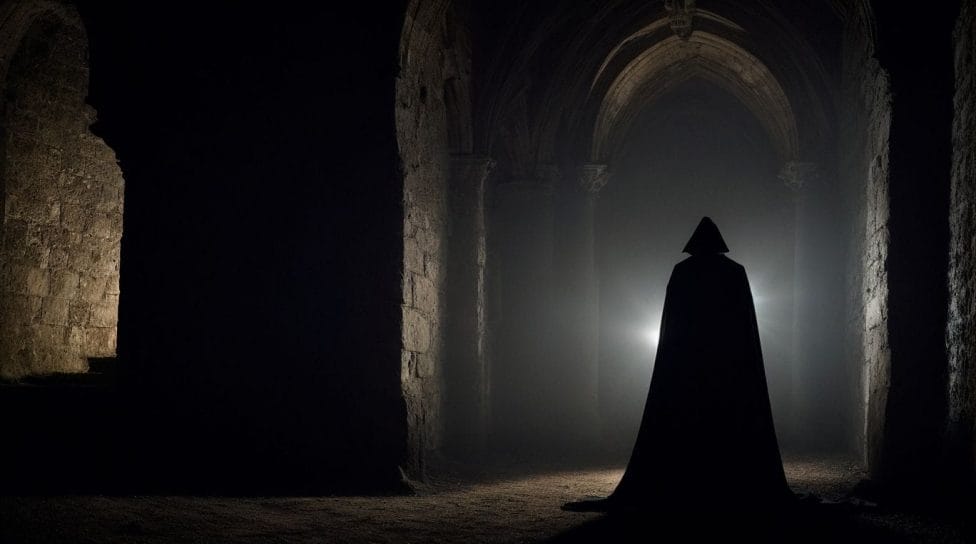
Photo Credits: Loststorystudios.Com by Raymond Rodriguez
The Origin of Dracula can be traced back to the novel of the same name written by Bram Stoker. Published in 1897, “Dracula” tells the story of Count Dracula, a vampire from Transylvania. Stoker drew inspiration from Eastern European folklore and historical figures like Vlad the Impaler. The enduring fascination with vampires and the supernatural is evident in the countless adaptations of Dracula in movies, television shows, and books, cementing its status as an iconic and lasting legacy in popular culture. The Who Wrote Dracula? Provides more information about the author and his famous creation.
Bram Stoker: The Author of Dracula
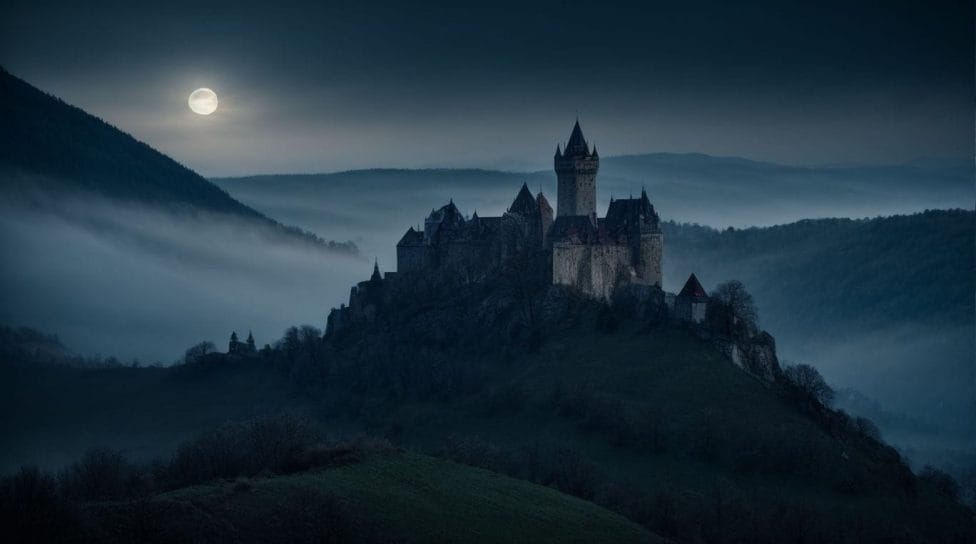
Photo Credits: Loststorystudios.Com by Elijah Martinez
Bram Stoker: The Author of Dracula
Bram Stoker, the renowned author of the iconic novel “Dracula,” published in 1897, hails from Ireland. Drawing inspiration from a variety of sources, including Eastern European folklore and the historical figure Vlad the Impaler, Stoker crafted a masterpiece. His novel revolves around the enigmatic vampire Count Dracula, marking it as a timeless classic within the horror genre while also popularizing the vampire trope in literature and entertainment. Bram Stoker’s distinct contribution to literature and his creation of the enduring character of Dracula has firmly established him as one of the most esteemed authors in the literary world.
Who was Bram Stoker?
Who was Bram Stoker?
Bram Stoker, a renowned author, is best known for his iconic novel Dracula. Born in 1847 in Dublin, Ireland, Stoker began his career as a theater critic, eventually leading him to meet notable actors and writers. His most significant contribution to literature came with the publication of Dracula in 1897. Stoker’s fascination with Eastern European folklore and his extensive research on vampire legends influenced the narrative of his novel. Despite initial mixed reviews, Dracula gained popularity over time and has become a cultural phenomenon. Bram Stoker’s legacy as the creator of one of the most enduring and influential literary characters continues to captivate readers worldwide.
The Writing Process of Dracula

Photo Credits: Loststorystudios.Com by Wayne Johnson
Unraveling the captivating writing process of Dracula, we plunge into the depths of inspiration, rigorous research, and influential factors. Brace yourself for a thrilling journey through the creator’s mind as we explore the mysterious origins and the fascinating blend of elements that brought this iconic literary masterpiece to life. Let’s delve into the untold secrets behind the creation of Dracula, unearthing the untamed imagination and scholarly endeavors that shaped its chilling narrative.
Inspiration for Dracula
The inspiration for Dracula was derived from various sources, including folklore, history, and personal experiences. Bram Stoker’s creativity was sparked by the Transylvanian legends of Vlad the Impaler, which served as a muse for the character of Dracula. Stoker also found inspiration during his journeys through Eastern Europe, where he encountered captivating tales of vampires and enigmatic castles. Furthermore, Stoker’s fascination with the occult and extensive research on vampire folklore significantly contributed to the conception of the iconic vampire character. The amalgamation of these influences and Stoker’s vivid imagination culminated in creating one of the most renowned characters in the history of literature.
Research and Influences
Research and influences played a significant role in the writing process of Bram Stoker’s iconic novel, Dracula. Stoker conducted extensive research into vampire folklore, drawing inspiration from various sources. One major influence was the history of Vlad the Impaler, a figure known for his brutal methods. Stoker also took inspiration from other Gothic literature, such as Sheridan Le Fanu’s “Carmilla.” These research findings and literary influences helped shape the unique narrative and character development in Dracula. The blend of historical research and literary influences resulted in a seminal work that continues to captivate readers today.
Publication and Reception of Dracula
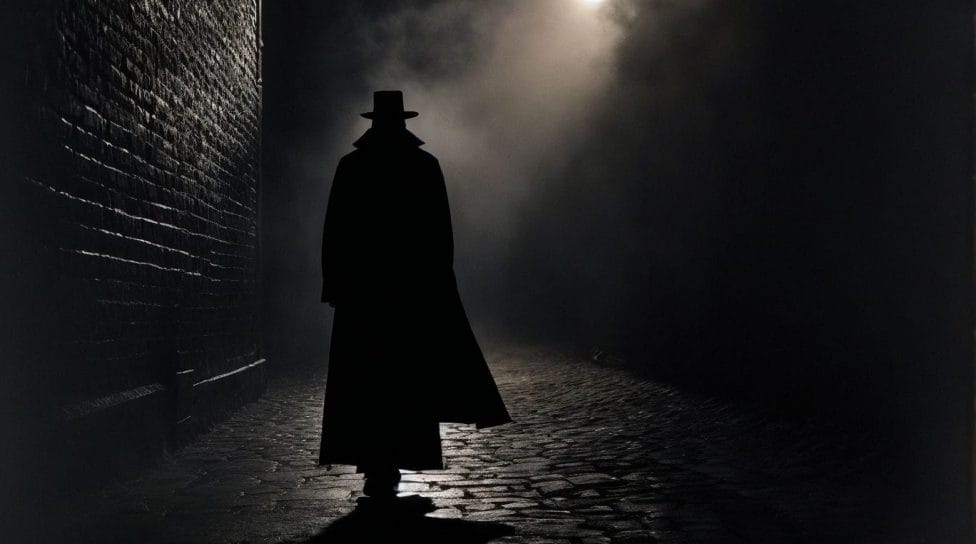
Photo Credits: Loststorystudios.Com by Jeffrey Torres
The publication and reception of Dracula played a pivotal role in the success of Bram Stoker’s novel. When first published in 1897, the literary critics had mixed reviews. However, the book gradually gained popularity among readers and eventually became a Gothic literature classic. One of the reasons behind its success was the innovative narrative style, the vivid descriptions, and the captivating character of Count Dracula. Furthermore, Dracula’s triumph was further amplified by its adaptation into various forms of media, such as theater, film, and television. It is recommended that when delving into classic literature, one should consider the historical and cultural context in which the work was published to comprehend its significance fully.
Legacy and Impact of Dracula
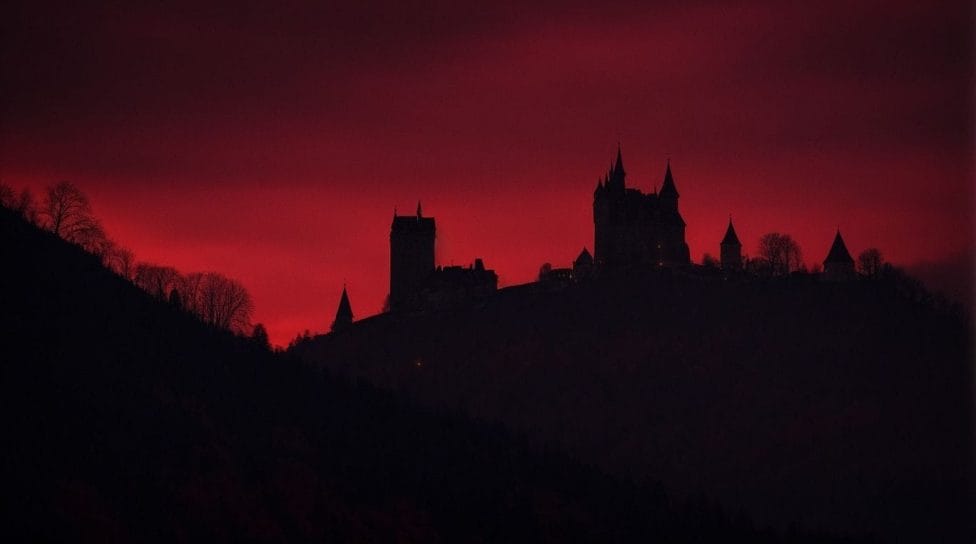
Photo Credits: Loststorystudios.Com by Roy Davis
Dracula, the legendary vampire, continues to leave an indelible mark on our culture and imagination. From his enduring popularity to the countless adaptations and cultural references, the impact of Dracula is undeniable. Exploring the allure and fascination surrounding this iconic character, we’ll uncover the reasons behind Dracula’s perpetual fame and delve into the wide array of adaptations and cultural nods that continue to keep his legacy alive. Join us on this thrilling journey into the legacy and impact of Dracula.
Dracula’s Enduring Popularity
Dracula’s enduring popularity continues to captivate audiences. This can be attributed to several factors. The timeless appeal of the vampire genre itself plays a significant role in maintaining Dracula’s longevity. People are fascinated by the allure and mystique surrounding vampires. Bram Stoker’s masterful storytelling, rich characterization, and atmospheric descriptions all contribute to the lasting impact of the novel, further fueling Dracula’s enduring popularity. The numerous adaptations and cultural references that have emerged throughout the years have also solidified Dracula’s status as a cultural icon. Whether in literature, film, television, or even Halloween costumes, Dracula’s enduring popularity is a testament to the enduring fascination with this iconic character.
Adaptations and Cultural References
Dracula has had a significant impact on popular culture through its numerous adaptations and cultural references over the years. To learn more about Who Wrote Dracula?, you can visit Wikipedia.
- Film Adaptations: Film history has witnessed countless adaptations of Dracula, ranging from the iconic 1931 version starring Bela Lugosi to more recent interpretations like “Bram Stoker’s Dracula” directed by Francis Ford Coppola.
- Television Series: Dracula‘s story has been reimagined in various television series, including the critically acclaimed “Dracula” series developed by Mark Gatiss and Steven Moffat.
- Literary Influence: Dracula‘s influence can be seen in many literary works, spanning from vampire-themed novels like “Twilight” to vampire romance novels like “True Blood.”
- Pop Culture
Some Facts About Who Wrote Dracula:
- ✅ Bram Stoker, an Irish author, wrote the famous novel “Dracula.”
- ✅ Stoker was born on November 8, 1847, in Clontarf, Dublin, Ireland.
- ✅ He died on April 20, 1912, in Pimlico, London, England, at 64.
- ✅ Stoker worked as a theatre critic, a personal assistant to actor Sir Henry Irving, and the business manager of the West End’s Lyceum Theatre.
- ✅ Stoker drew inspiration for his novels from his travels, including visits to Cruden Bay in Scotland and Whitby in England.
